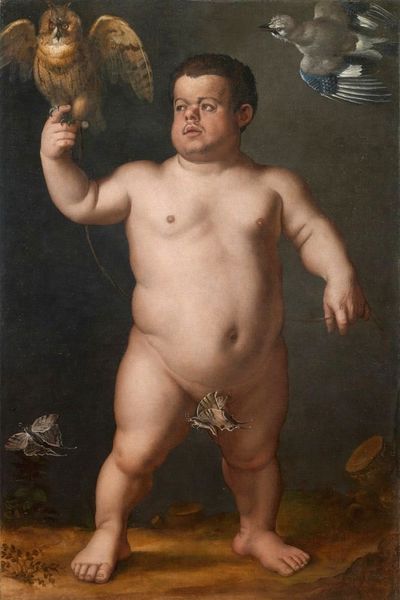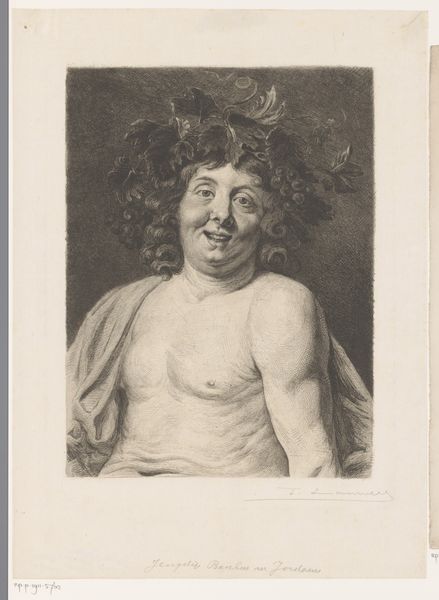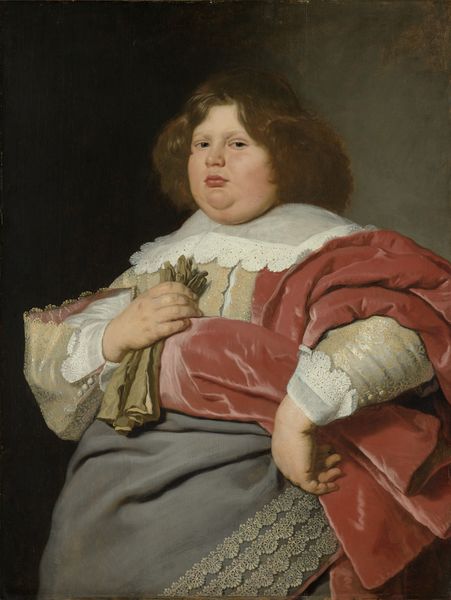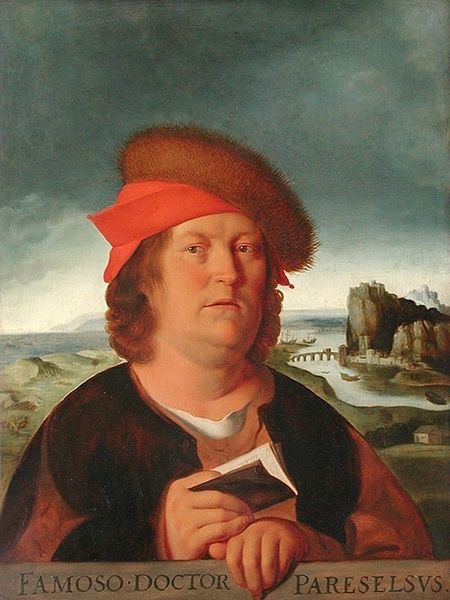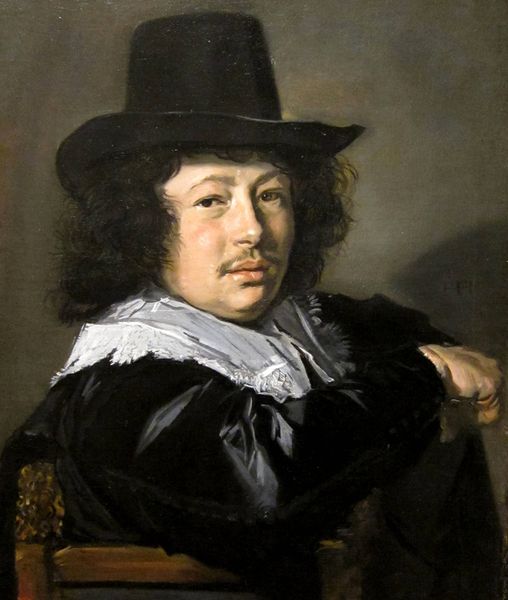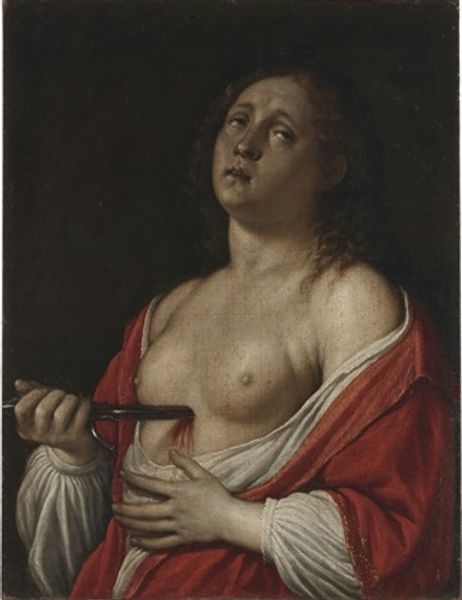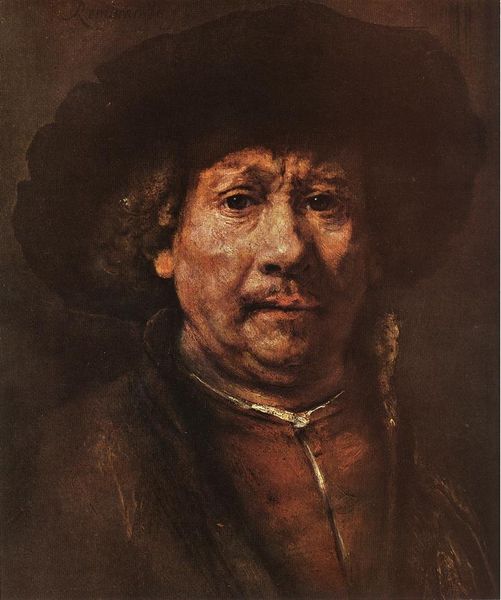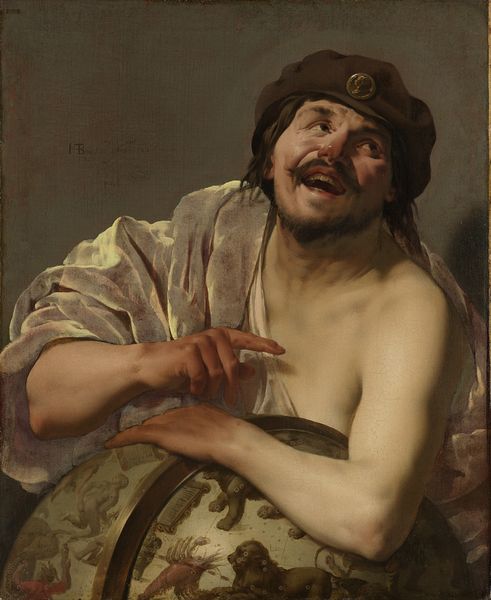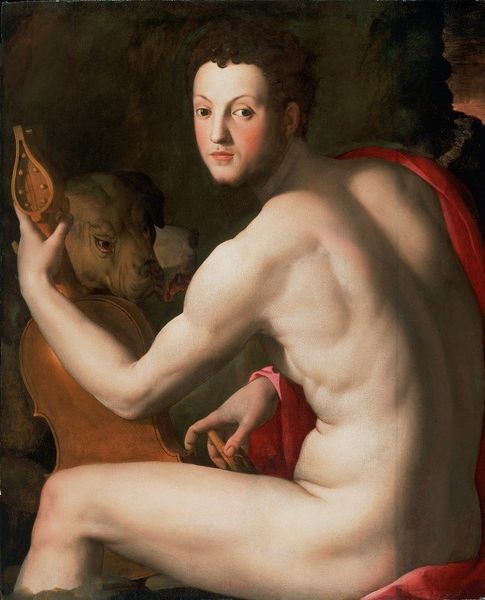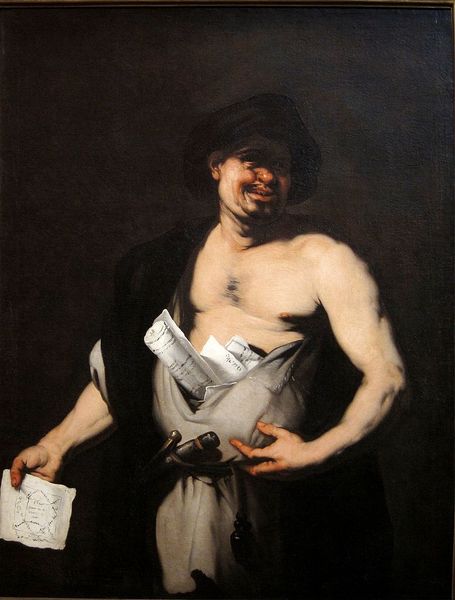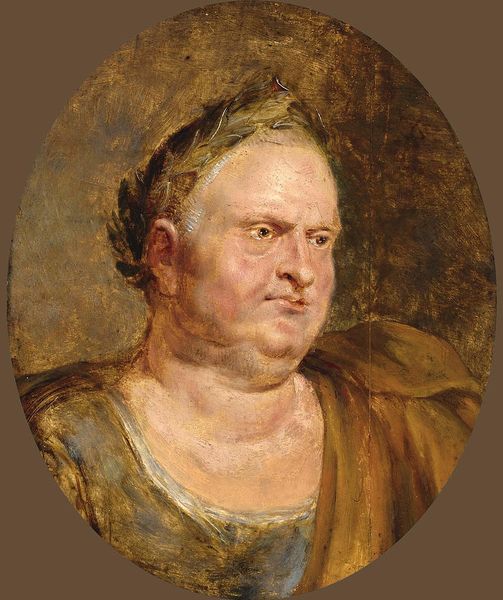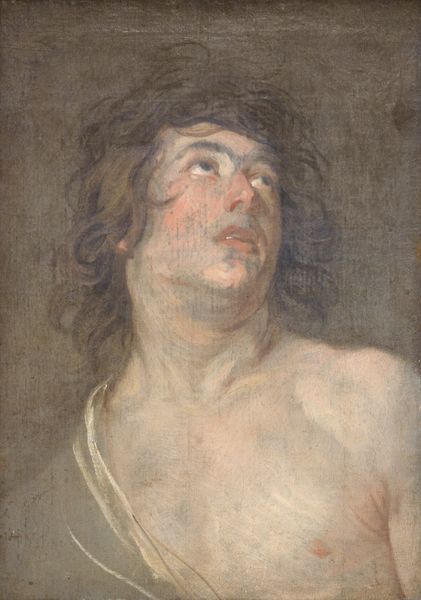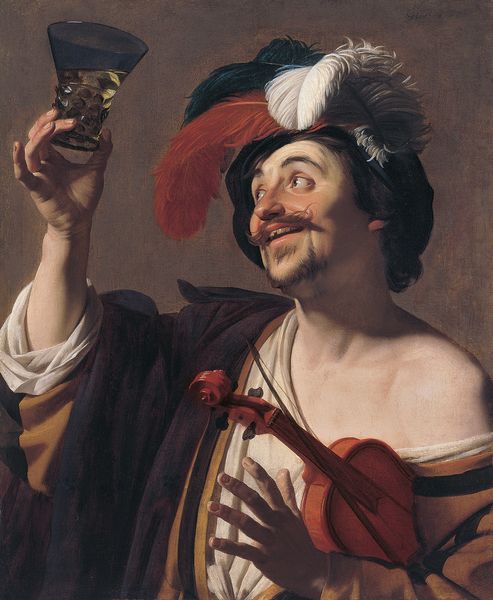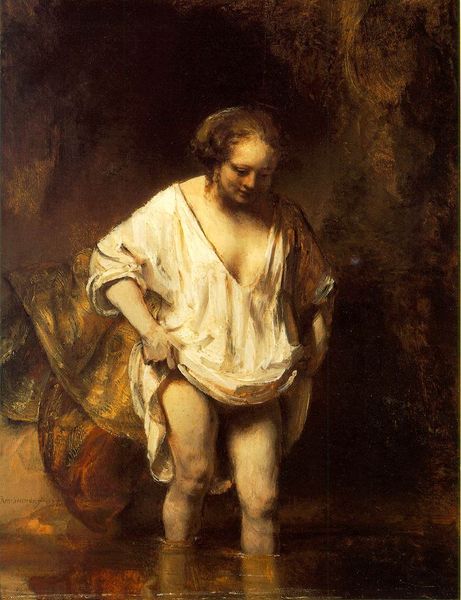
painting, oil-paint
#
portrait
#
allegory
#
baroque
#
painting
#
oil-paint
#
figuration
#
mythology
#
animal drawing portrait
#
history-painting
#
nude
Copyright: Public Domain: Artvee
Curator: Jacob Jordaens, a leading Flemish Baroque painter, likely completed this depiction of "Bacchus" sometime between 1640 and 1650 using oil paints. What’s your immediate take on this mythological portrait? Editor: Boisterous! And kind of...cheeky, literally and figuratively. The grape crown, the slight smirk – it feels like Bacchus is sharing an inside joke with us. He’s the god of wine, sure, but also the god of theater, and this feels theatrical. Curator: It's intriguing how Jordaens situates Bacchus within the broader context of 17th-century societal norms and philosophical thought, notably hedonism. His art often blurs lines between celebration and excess, a relevant commentary on power dynamics during his era. The male gaze here warrants deconstruction too, don't you think? Editor: Oh, absolutely! There’s definitely a sensuality here. It’s playful and inviting rather than overtly sexualized, though. And think about that red drape: is it adding elegance, or just about to slip off completely? The color itself seems vital here, almost dripping onto the canvas. Curator: Absolutely, that drape invites complex questions about representation. Jordaens painted at a time when the Dutch Republic was consolidating power, grappling with issues of religious reform. Mythological paintings offered both escape and commentary, and considering that is fundamental. Editor: It makes me think about transformation and indulgence...about letting go, and perhaps a sly critique of that same freedom. It’s a big-hearted painting; literally, and emotionally, ha! But there's so much more beyond mere fleshiness here. Curator: Yes! The artist adeptly captures the nuance of pleasure, filtered through the lens of social critique, providing space for interpretations around themes of social permissiveness during periods of upheaval and renegotiated societal conventions. Editor: Well, I started off giggling a bit, but now I am seriously thinking about grapes, revolution, and very large canvases! The magic of art, eh? Curator: Precisely! It invites you in, asking not just "what do you see?" but, far more importantly, "what do you perceive and feel, when considering social conventions through artistic interpretation?"
Comments
No comments
Be the first to comment and join the conversation on the ultimate creative platform.
